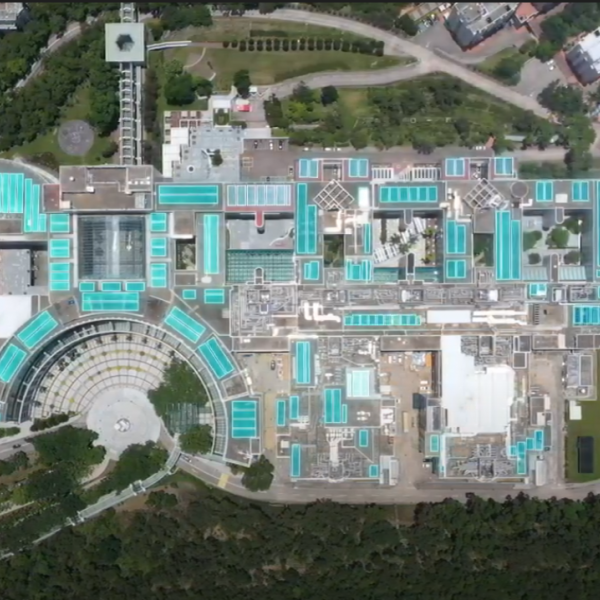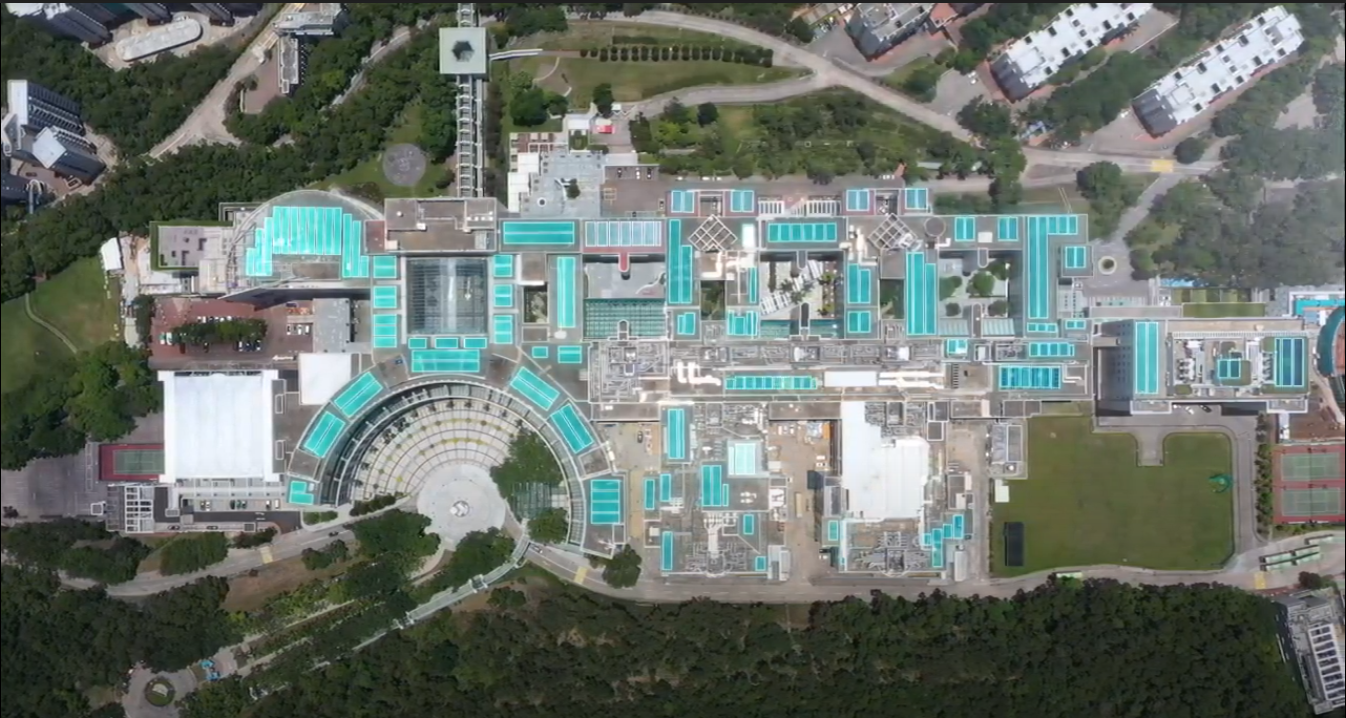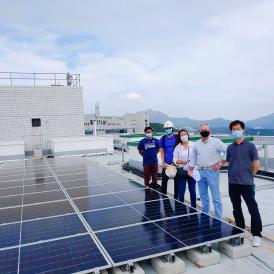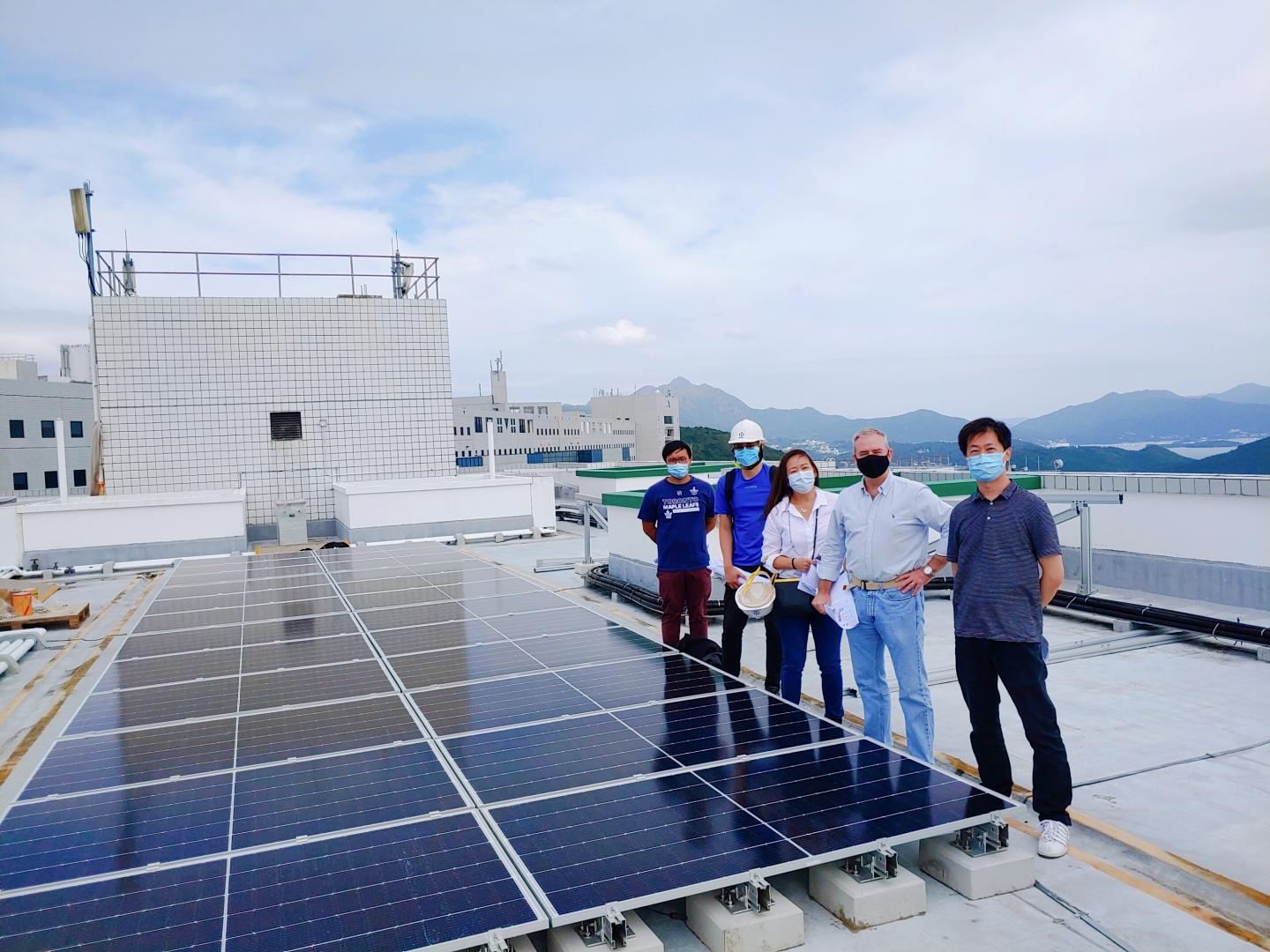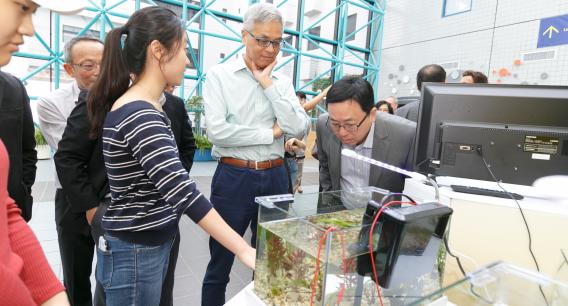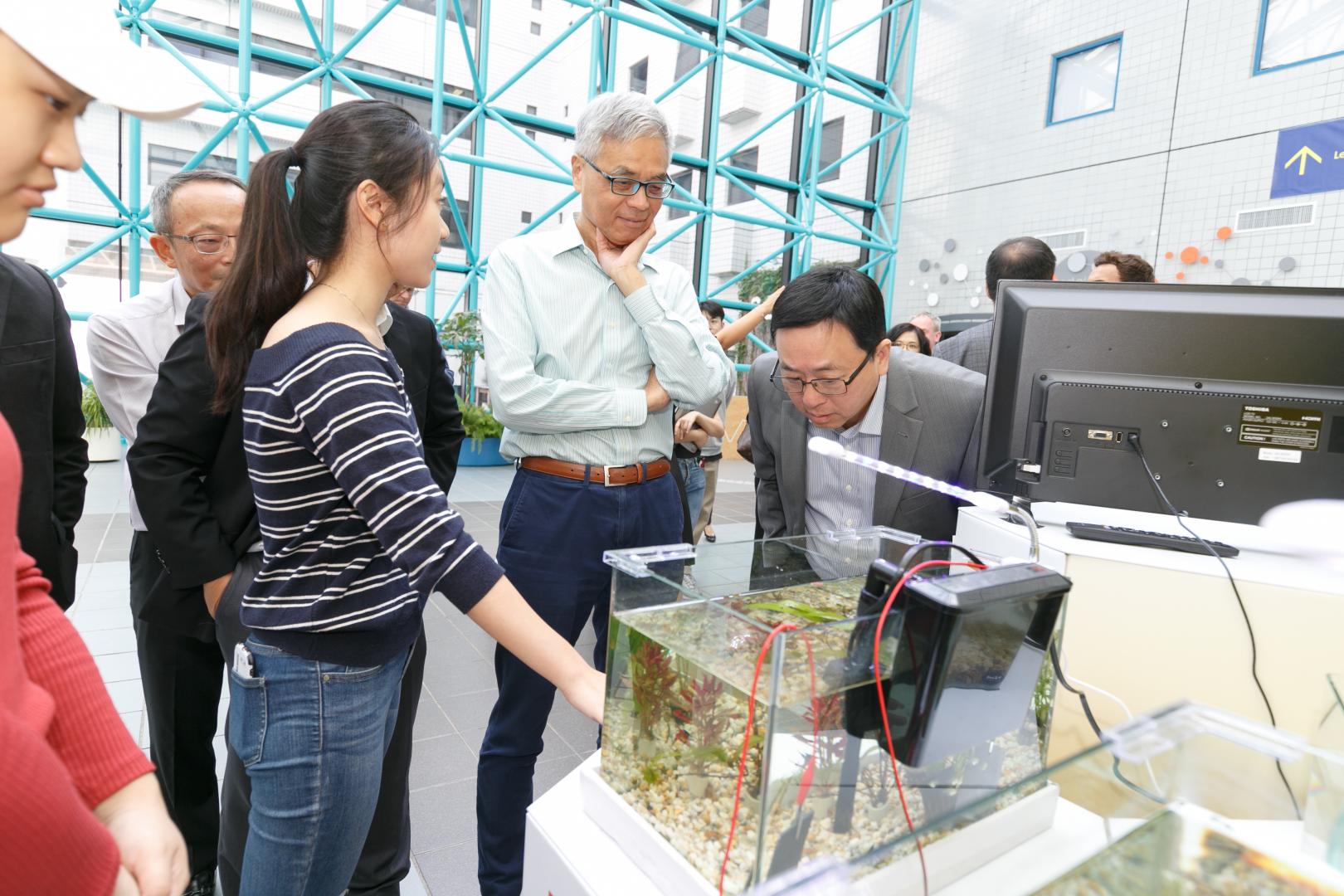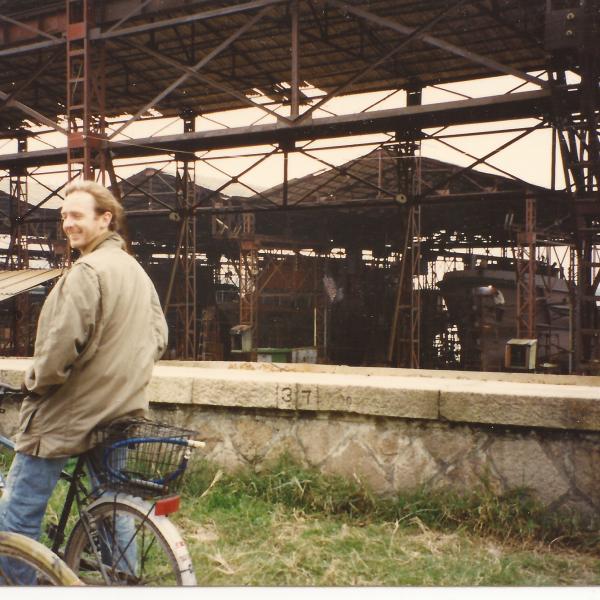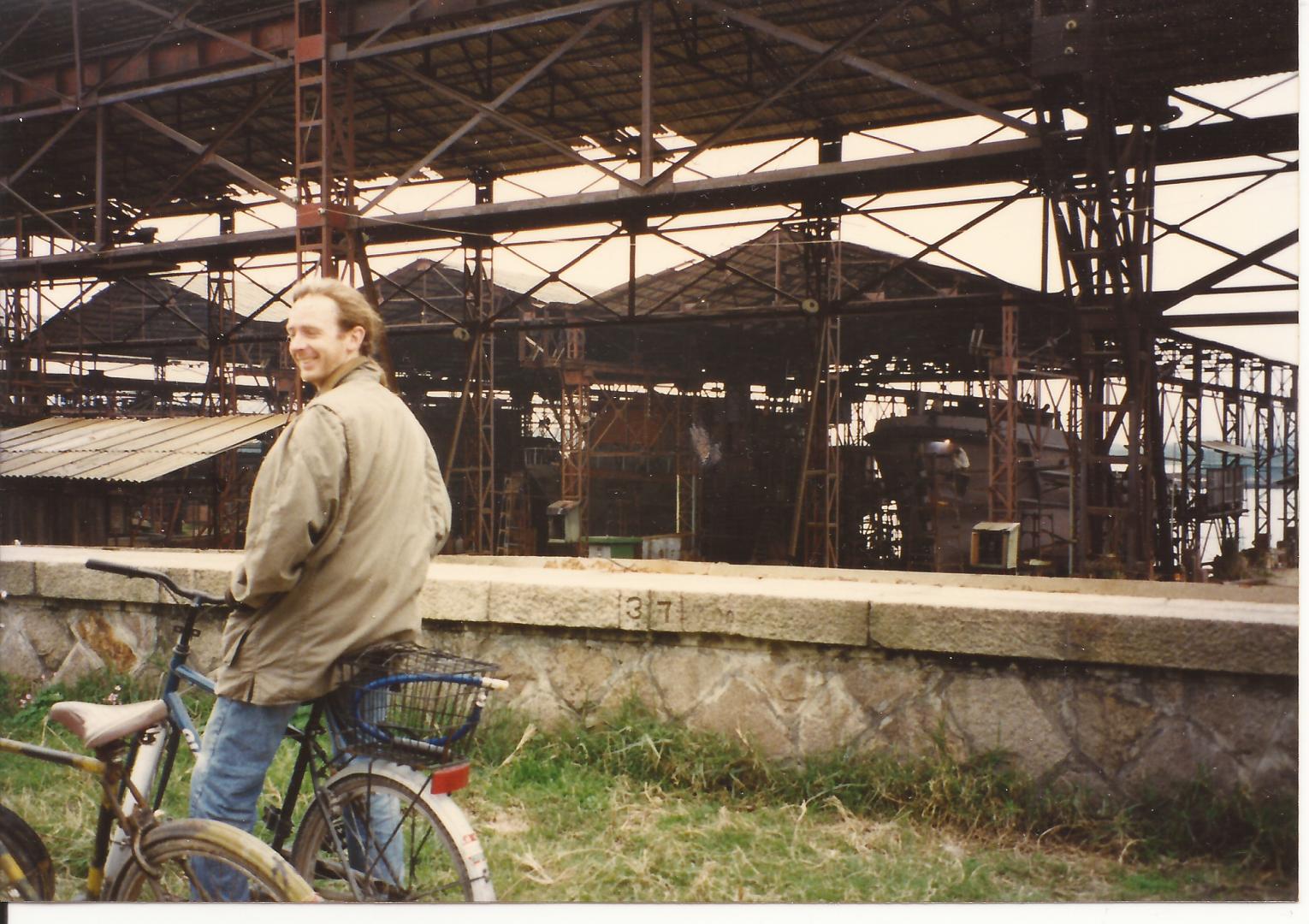Powering a Bright Solar Future
According to the United Nations, energy supplied by fossil fuels is the largest net contributor to total global greenhouse gas emissions. Therefore, energy, which accounts for over one-third of total emissions, must be at the heart of any solution to rapidly accelerating climate change.
Davis BOOKHART, Director of the newly established Sustainability/Net-Zero Office and Adjunct Assistant Professor, Division of Environment and Sustainability at HKUST, understands clearly that the planet is in dire need of help. He has spent the last 20 years exploring innovative ways of conserving energy and has led energy transitions initiatives for institutions in both the US and Hong Kong.
The climate advocate is behind HKUST’s endeavours to transform itself into a testing ground for creative sustainable initiatives. One of the recent big projects Bookhart is spearheading is an ambitious solar energy system — the biggest yet undertaken in Hong Kong — which will see 8,000 solar panels installed in over 50 locations across campus, covering student and staff residences, academic and research blocks as well as sports and transport complexes.
Aggressive energy goals
As part of the University’s first ever sustainability master plan developed by its Sustainability Unit, now renamed the Sustainability/Net-Zero Office, the system is expected to generate up to 3 million units (kWh) of electricity each year — equivalent to the annual electricity consumption of more than 900 three-member households in Hong Kong — and reduce 1.5 million kg of carbon emissions per annum over a 25-year period.
At the time of writing, about 75 per cent of the system is complete, with the project targeted for completion by the end of the Spring semester in 2022. Bookhart says this will be treated as “phase one” and the office is ready to move on to more difficult installations where solar panels can be installed on structures over parking spaces to simultaneously provide shade for cars and generate electricity or where panels serve as actual façades of buildings.
“A large solar project like this really is a statement to our community that says we are serious about combatting combat climate change,” Bookhart says. “The higher education sector has a real chance to set a positive example for the sustainable development of Hong Kong.”
But while the solar panel initiative is an important prong of the University’s drive to cut energy consumption by 15 per cent by 2028, as pledged in the University’s renewed sustainability master plan “2028 Sustainability Challenge”, Bookhart says it needs to be combined with other measures to obtain optimal results, such as a reduction in one-time use plastic disposables used on campus and through community organic gardening and recreation. All part of a big push to make HKUST an exemplary green campus.
A climate change advocate
Sustainability has been a fairly long learning curve for Bookhart, whose interest in environmental matters stems initially from two years he spent in China in the 1990s teaching American Literature at Fuzhou University. “I enjoyed getting up early in the morning on weekends and riding my bike into the countryside just to see the incredible mountains and waterways,” he recalls.
“One thing that really stuck with me was that the landscape was suffocating under pollution, plastic and other waste. I realized that the levels of pollution were directly related to efforts to improve people’s lives by raising them out of poverty. I thought there must be a way to do one without the sacrifice of the other. ”
After returning to the US and getting a second degree in law and diplomacy, Bookhart threw himself into environmental initiatives, advocating the use of renewable fuels and resources and ultimately spending eight years as the director of the Office of Sustainability at Johns Hopkins University, which he also founded. This led to some ambitious projects being undertaken on its campus, including a solar energy project similar to that currently being implemented at HKUST — “at the time it was the largest rooftop solar installation along the east coast of the US”.
Bookhart subsequently joined HKUST in 2013 to lead the newly founded Sustainability Unit, and helped develop its first comprehensive sustainability master plan. His previous experience at Johns Hopkins has been instrumental in helping to spread the bulk financial costs often incurred in substantial sustainability initiatives. “Creating partnership agreements really helped us implement big projects like the solar panel one in a way that makes most sense for the University,” he says.
For the solar panel project, HKUST will benefit from the China Light and Power Company’s Renewable Energy Feed-in Tariff (FiT) Scheme and generate around HK$160 million up to 2033. After paying off the costs of the installation, HKUST will receive an average of HK$4 million per year that will be reinvested in further campus energy efficiency and greenhouse gas reduction projects.
Taking a step change
The initiative is what Bookhart calls a “step change” project, meaning that it is transformational. “It’s about reimaging how we can use our space better, and not being afraid to make big changes for big impacts,” he says.
In their capacity as the University’s sustainability arm, Bookhart and his colleagues are very much involved in bringing about these transformational changes that take place in the broader system. “For instance, we realized in the designs of the new Guangzhou campus that the new data centre would be a problem because it produces huge amounts of heat,” he says. “However, recognizing the heat as a resource allowed us to redesign the campus to utilize it to warm the majority of campus hot water for showers.”
These sustainable initiatives have found a resourceful environment to materialize at HKUST, for the University is particularly privileged to have ready access to world-class research within such a close and robust community. Much of the time, Bookhart says, faculty and students come to the Sustainability Office with their own methods to try out: “We call our entire campus a living laboratory — everything you see could be a part of an experiment.”
Bookhart is referring to the Sustainability Campus as Living Lab (SSC) initiative carried out in a partnership between their Office and the GREAT Smart Cities Institute. The initiative aims at transforming the campus into a platform for learning, experimenting, and showcasing new ideas and approaches.
“SSC is one of our proudest achievements,” he says excitedly. “We’re trying to expand learning beyond the classroom by supporting faculty, students, and alumni to test out their ideas on our campus. By demonstrating these ideas in a live situation – and not in a lab – it is easier to showcase and share with practitioners across Hong Kong. We are seeing that SSC projects are stepping stones to larger collaborations with partners across the Greater Bay Area.”
Since its inception in 2019, over 30 university-funded projects have been launched, encompassing a broad range of fields from AI-driven fauna and flora tracking systems to self-cleaning multifunctional nanocoating technology; others include blockchain technology for documents and also autonomous greywater treatment processes.
With the recent establishment of a new Sustainability/Net-Zero Office, Bookhart is optimistic that it will bring new impetus to the entire community as the University pursues more step changes. The new office will oversee the implementation of the University’s new sustainability strategic plan, and, as part of this effort, continue to realize more inspiring ideas under SSC and accelerate a range of research projects that call for all members’ contribution to campus and regional net-zero carbon goals.
Still, Bookhart recognizes how complex and difficult striving to reduce one’s impact on the environment can be, considering that environmental issues are ultimately often moral ones. “It’s about one’s responsibility on this earth,” he says, adding that it all comes down to a question that can only be answered by oneself: “Am I doing everything I possibly can to leave this world a better place? If I can answer that question positively, I feel like my life has meaning.”

